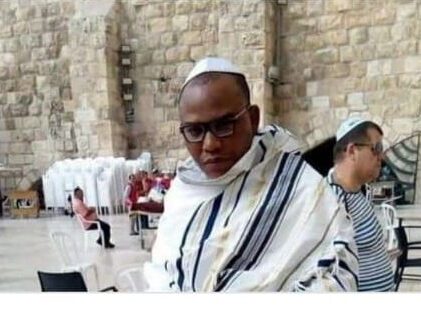British government finally open up on helping Nnamdi Kanu out.

The British authorities has dashed hope of Nnamdi Kanu, leader of the Indigenous People of Biafra (IPOB) regaining freedom.
Kingsley Kanu, the IPOB leader’s sibling who had revealed that he was arrested in Kenya had appealed to British authorities to ensure his brother’s release.
Kingsley said;
“The British High Commission in Nigeria must insist upon my brother’s immediate release. They must guarantee his safety and security. Nnamdi Kanu must be returned home to the UK to his wife and his sons who live here. The Foreign Secretary, Dominic Raab, must make clear to the Nigerian authorities that they will not tolerate the unlawful detention of British citizens and that the UK Government condemns the Nigerians and Kenyans for undermining the rule of law.”
However a manual titled ‘Support for British nationals abroad: A guide’ and published on the website of the UK government, it was clearly stated that British authorities can’t get anyone out of prison or detention because of their nationality.
It was however stated that they can approach local authorities if the British national is not treated in internationally accepted standards.
19th page of the document read;
“We can offer you information about the local prison or remand system, including visiting arrangements, mail and censorship, privileges, work possibilities, and social and welfare services. We can also explain where there are different regulations for remand prisoners and sentenced prisoners. For example, in some countries, prisoners are allowed to send more mail when they are on remand.
“We cannot get you out of prison or detention, nor can we get special treatment for you because you are British. If however you are not treated in line with internationally accepted standards we will consider approaching local authorities. This may include if your trial does not follow internationally recognised standards for a fair trial or is unreasonably delayed compared to local cases.
“With your permission, we can consider taking up a complaint about ill-treatment, personal safety, or discrimination with the police or prison authorities.
“Consular staff will keep in regular contact with you, either by visiting personally or by telephone/ letter. The frequency of visits will depend on local prison conditions and your personal circumstances.
“If you are a dual British national in the country of your other nationality, we would not normally offer you support or get involved in dealings between you and the authorities of that state. We may make an exception to this rule if, having looked at the circumstances of the case, we consider that you are vulnerable and we have humanitarian concerns.”